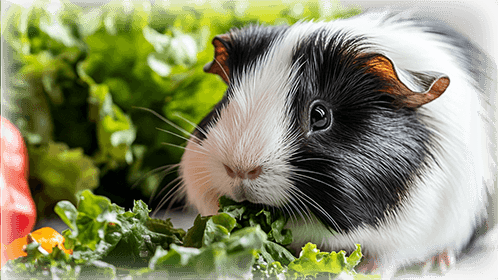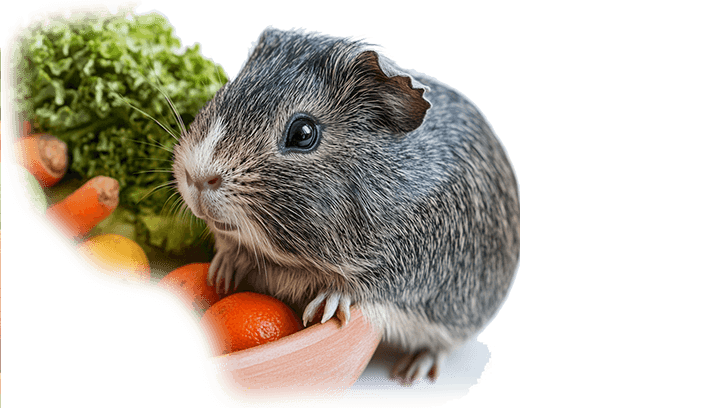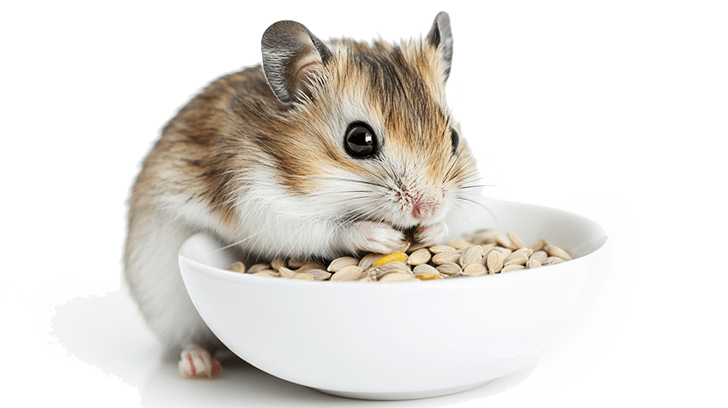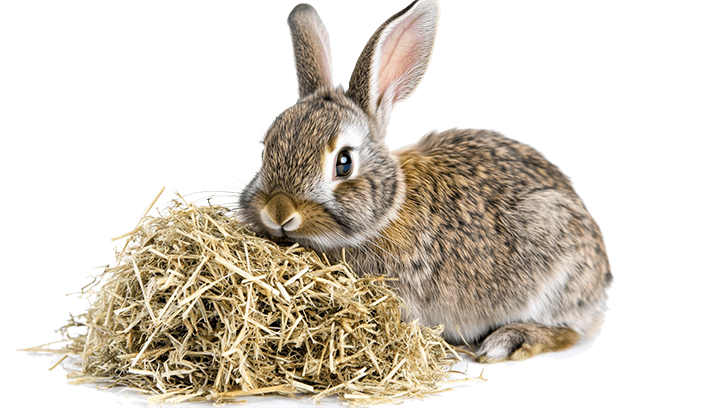Small Pet Health Guides: Caring for the Health and Well-Being of Your Tiny Companions
Small pets like hamsters, guinea pigs, rabbits, gerbils, and mice may be tiny, but their health needs are just as important as those of larger animals. These pets often require specialized care, and understanding their unique health challenges can help ensure they live long, healthy lives. Whether you’re a new small pet owner or have years of experience, knowing how to recognize early signs of illness and providing the right care can make a world of difference for your pet’s well-being.

Common Health Issues in Small Pets
Though small pets are often viewed as low-maintenance, they are prone to specific health problems that, if left unaddressed, can significantly impact their quality of life. Many of these issues stem from improper diet, inadequate habitat setup, or lapses in hygiene. By staying aware of these potential problems, you can take steps to prevent them and keep your pet in good health.
Dental Disease
For many small pets, such as guinea pigs and rabbits, dental health is a significant concern because their teeth grow continuously throughout their lives. If their teeth aren’t properly worn down through chewing, they can become overgrown, leading to painful dental issues that can make eating difficult. Providing appropriate chew toys or fibrous foods like hay is essential to keep their teeth in check.
Respiratory Infections
Small pets, particularly rodents like hamsters and guinea pigs, can be highly susceptible to respiratory infections. These infections are often caused by poor ventilation, exposure to drafts, or unsanitary living conditions. Signs to watch for include wheezing, nasal discharge, labored breathing, and lethargy. Quick action is important, as untreated respiratory infections can quickly worsen.
Digestive Issues
Diet plays a crucial role in the health of small pets, and imbalances or poor-quality food can lead to digestive issues. For example, guinea pigs and rabbits require high-fiber diets to support proper digestion, and without it, they can suffer from bloating, diarrhea, or gastrointestinal stasis (a potentially life-threatening condition in rabbits). Always ensure your small pet has access to species-appropriate food and fresh water.

Skin Conditions
Mites, fleas, and skin infections are common issues that can affect small pets, especially if their bedding is not changed regularly or if they are housed in unsanitary conditions. If you notice excessive scratching, hair loss, or visible skin lesions, it may be a sign of a skin condition that requires treatment. Keeping their living environment clean is the best defense against skin issues.
Obesity
Small pets, particularly hamsters and guinea pigs, are prone to obesity if they aren’t provided with enough exercise or if they are overfed. Obesity can lead to a range of other health issues, including heart problems, joint pain, and diabetes. Encouraging regular physical activity by providing toys, tunnels, and safe spaces to explore can help maintain their weight and improve overall well-being.

Preventive Health Care for Small Pets
Prevention is the cornerstone of maintaining your small pet’s health. By taking proactive measures, you can avoid many common health problems and ensure your pet stays happy and healthy.
One of the most important aspects of preventive care is providing a proper diet tailored to your pet’s species. For example, guinea pigs require vitamin C in their diet because they cannot produce it on their own, making supplements or vitamin C-rich foods like bell peppers and leafy greens essential. Rabbits, on the other hand, need a high-fiber diet consisting mainly of hay to keep their digestive system functioning properly.
Keeping your pet’s living environment clean is equally crucial. Regularly changing bedding, sanitizing food and water dishes, and maintaining proper ventilation can significantly reduce the risk of respiratory infections and skin problems. Exercise is also vital for your pet’s mental and physical health. Hamster wheels, tunnels, and even supervised free-roaming time outside their enclosure are great ways to encourage movement and prevent obesity.
Finally, regular veterinary check-ups are just as important for small pets as they are for larger animals. These visits allow your vet to detect any potential issues early on, even if your pet isn’t showing obvious signs of illness. Small pets are experts at hiding symptoms, so routine exams are a critical part of preventive care.
Breed-Specific Health Issues
Each small pet species comes with its own unique set of health challenges. Understanding these breed-specific concerns will help you provide the best possible care for your pet.
Guinea Pigs
Guinea pigs are particularly prone to scurvy, which is caused by a vitamin C deficiency. Symptoms of scurvy include lethargy, swollen joints, and poor appetite. Ensuring they receive adequate vitamin C in their diet is crucial. Additionally, guinea pigs often suffer from dental disease due to their constantly growing teeth and are prone to respiratory infections if housed in poor conditions.

Rabbits
Rabbits are known for being susceptible to dental issues, particularly overgrown teeth, which can cause severe pain and difficulty eating. Providing plenty of fibrous foods like hay helps wear down their teeth naturally. Another common issue in rabbits is gastrointestinal stasis, a condition where their digestive system slows down or stops. This can be life-threatening and is usually caused by stress, dehydration, or a low-fiber diet.
Hamsters
Hamsters often face respiratory infections, especially if they’re kept in dusty or unsanitary conditions. They’re also prone to a condition known as wet tail, a bacterial infection that causes severe diarrhea. Wet tail can be triggered by stress, a poor diet, or sudden changes in their environment. Regular cleaning and maintaining a calm, stable environment can help prevent these health problems.
Gerbils
Gerbils are prone to seizures, which are often linked to genetic factors. While these seizures are typically not life-threatening, they can be distressing for both the pet and the owner. Gerbils are also susceptible to nasal dermatitis, which occurs when they are exposed to inappropriate bedding materials. Choosing dust-free bedding can help avoid this skin condition.
Mice and Rats
Both mice and rats can develop respiratory issues, which are commonly caused by poor air quality in their habitat. They are also at risk of developing tumors, particularly as they age. Skin problems, such as mites or fungal infections, are also relatively common. Keeping their cage clean and free of dust, as well as monitoring for any changes in their health, will help prevent these issues.
When to See a Vet
Small pets have a natural instinct to hide signs of illness, making it all the more important to observe their behavior closely. If you notice any signs of illness, such as lethargy, decreased activity, loss of appetite, or labored breathing, it’s time to consult a vet. Other warning signs include visible lumps, abnormal stools, or excessive scratching.
Early detection is crucial for small pets, as their health can decline rapidly once symptoms become apparent. Regular check-ups and prompt veterinary care when you notice any unusual behavior can make a significant difference in your pet’s quality of life.
Conclusion
By providing your small pet with the proper diet, a clean environment, regular exercise, and timely veterinary care, you can ensure they live a long, happy life. Whether you’re caring for an energetic hamster or a gentle guinea pig, understanding their unique health needs and acting on early signs of illness are essential steps in keeping your pet healthy.
Explore our detailed guides on how to care for your specific small pet species below.

